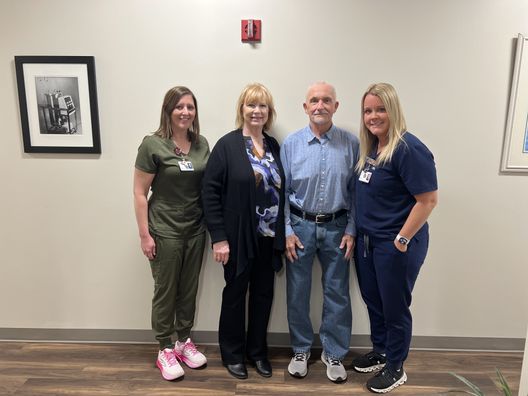Do you ever find yourself waking up in the middle of the night with numbness and tingling in your hand? Or maybe you experience a sharp pain in your wrist when you use your computer mouse for an extended time period? If so, you may be suffering from carpal tunnel syndrome — a common condition that affects millions of people worldwide.
Carpal tunnel syndrome is a common condition that causes numbness, tingling, and pain in the hand and forearm. The condition occurs when one of the major nerves to the hand — the median nerve — is squeezed or compressed as it travels through the wrist.
Management and treatment of the condition is provided by a few teams here at Quincy Medical Group (QMG), including our Neurology team. It is important to diagnose and treat carpal tunnel syndrome promptly. QMG Neurologist Dr. Daniel Kimple said a visit with him or one of his colleagues, Dr. Douglas Sullivant or Dr. Austin Hake, is a good starting point.
“For patients, the Neurology department should be an early stop in the process to have simple nerve tests completed to confirm the problem location and severity, and to exclude other causes,” Dr. Kimple said.
Many factors contribute to the development of carpal tunnel syndrome, including patients with a history of arthritis, elevated body mass index (BMI), thyroid disease, pregnancy, as well as work- and sleep-related triggers.
Symptoms can disrupt your day-to-day life. Dr. Kimple said those suffering with the condition may experience aching discomfort in the thumb base, hand, or forearm; tingling in hands; weakness of grip; or hands falling asleep while driving or sleeping.
If you think you may have carpal tunnel syndrome, speak to your primary care provider or reach out to the QMG Neurology team by calling (217) 222‑6550, ext. 3434.
Health Topics:







